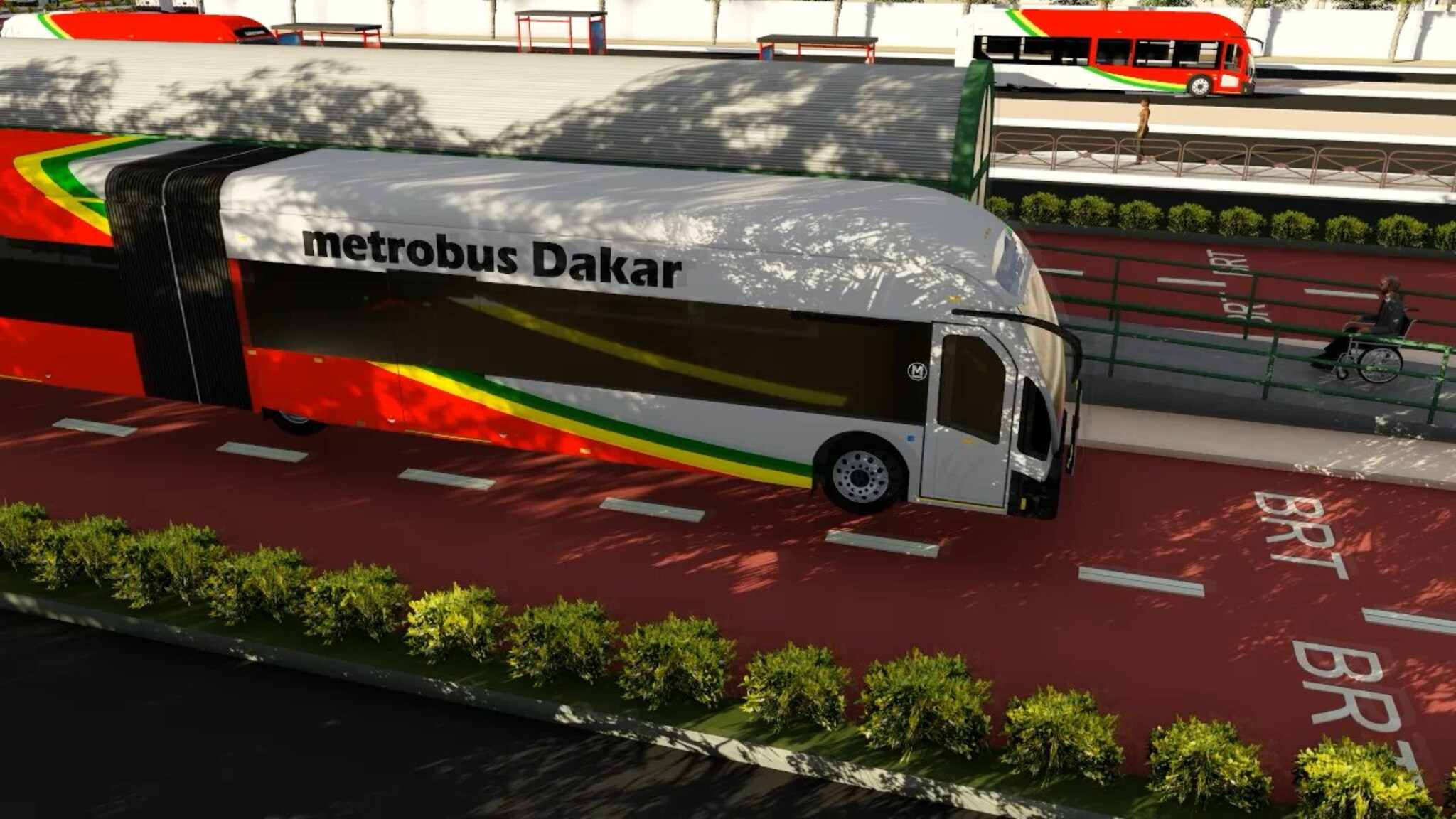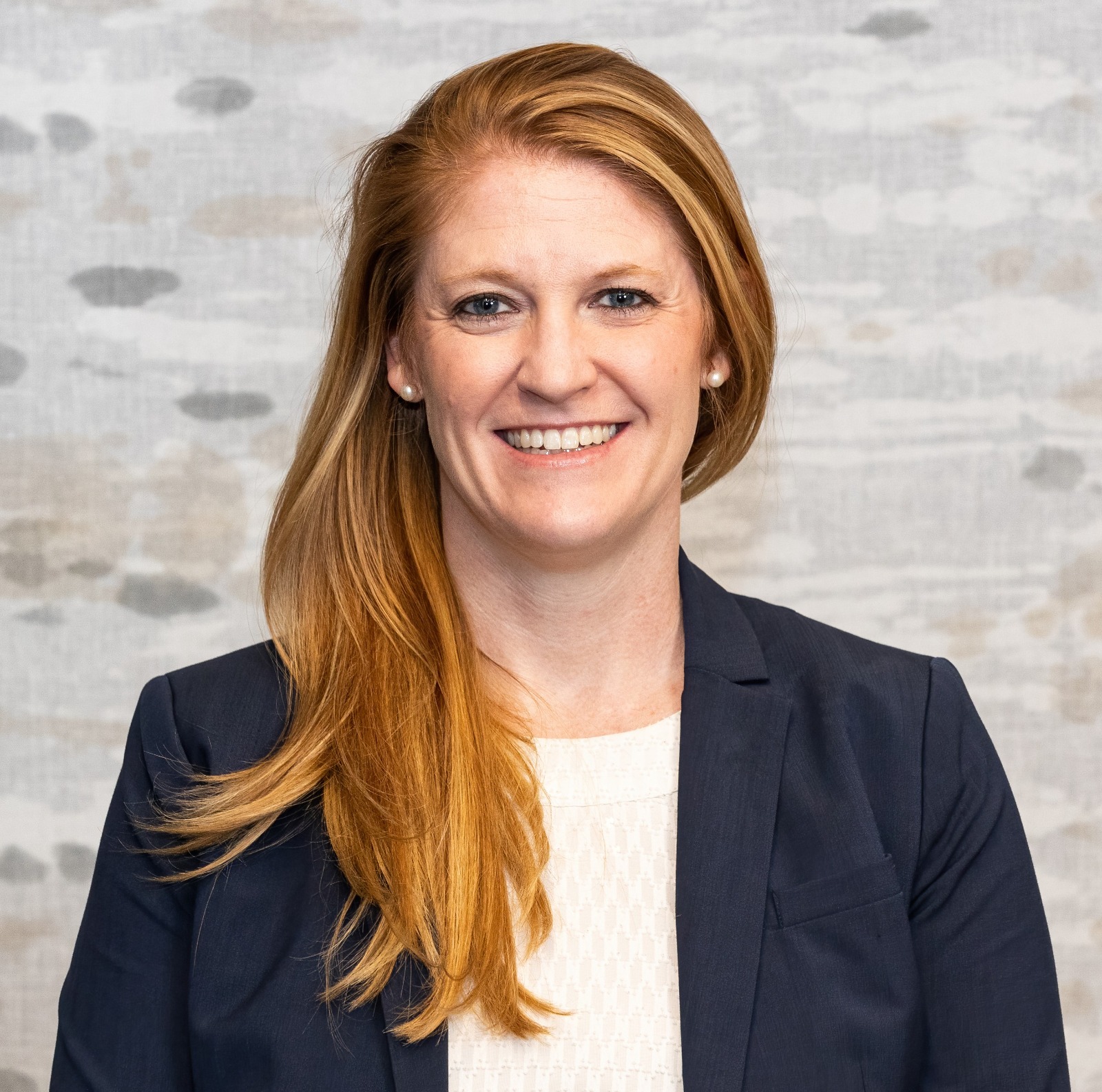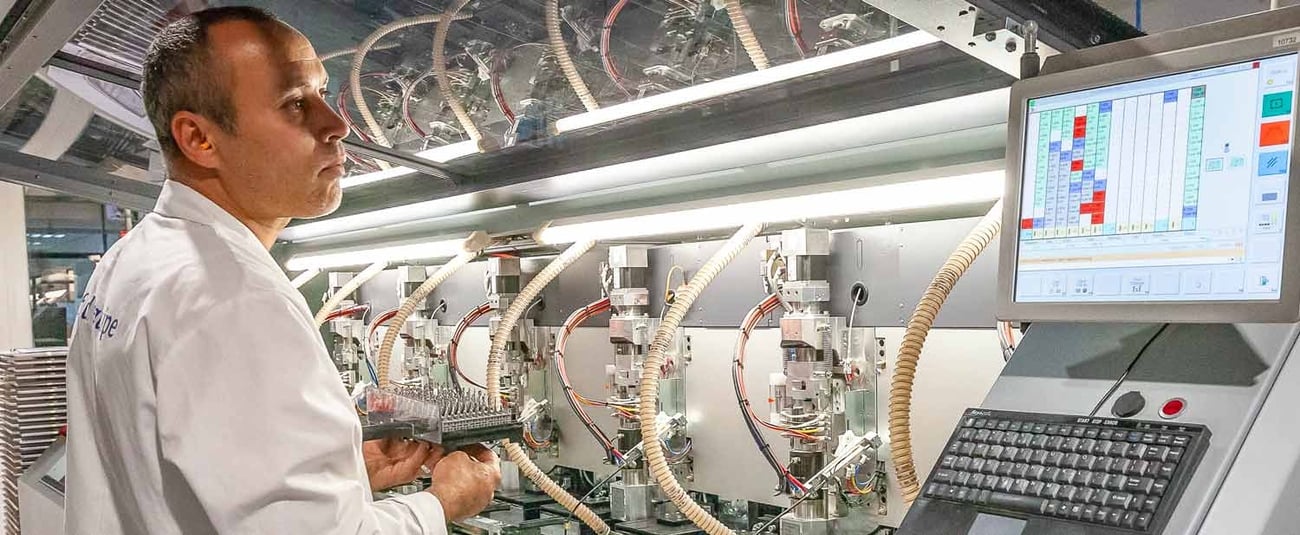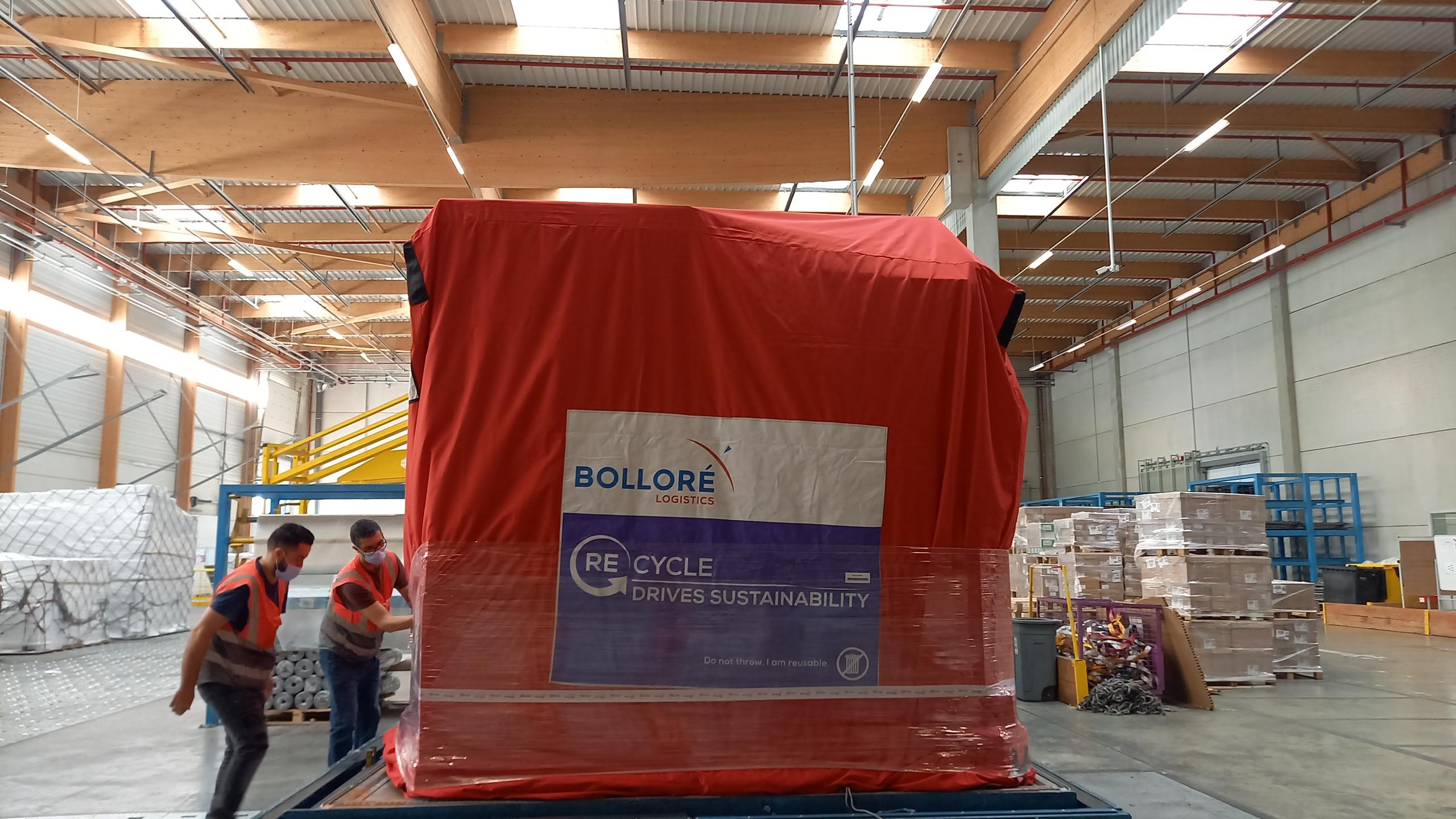Meridiam has just signed the concession contract for the Bus Rapid Transit (BRT) project in Dakar. This project, that Meridiam will implement with its partners Keolis and Fonsis is the first of its kind in Africa[1], and represents a total investment of more than €135 million. It includes the operation and maintenance for 15 years of this new clean public transport network, entirely dedicated to 100% electric buses. It is expected to be operational in the summer of 2023.
This project will create about 1000 direct and local jobs, with a focus on women and young people, of which about one third will be drivers. It is part of the ambitious and global strategy to modernise Dakar’s urban mobility and its transport network by 2025. It is also a concrete project in favour of the energy transition that offers a solution adapted to the challenge of climate change, but also an efficient alternative to the existing diesel bus network. It illustrates Meridiam’s commitment to developing social and sustainable infrastructure, and its concrete contribution to the United Nations Sustainable Development Goals (notably SDG 8 – Decent Work and Economic Growth, SDG 9 – Industry, Innovation and Infrastructure and SDG 11 – Provide Resilient Infrastructure and Develop Sustainable Cities).
The Dakar BRT will provide a sustainable solution:
- To passenger transport. Dakar is one of the largest cities in West Africa and the economic and political capital of Senegal. Its population (3.8 million) is expected to grow by about 40% over the next decade.
- Road congestion. Travel within the city, particularly by motorised transport, is expected to double in the next 20 years.
- The buses will run on batteries charged with 100% renewable electricity and will massively improve air quality in Dakar avoiding the emission of more than 59,000 tonnes of CO2 per year.
Thanks to these electric buses, comfort, safety, regularity and journey times will also be greatly improved. The link between the coastal town of Guédiawaye, north of Dakar, and the city centre during peak hours will be twice as fast, going from over 90 to 45 minutes. Transport costs in the city will be reduced through the implementation of an affordable and intermodal fare policy and social fares for eligible people defined by the State of Senegal. Finally, the inhabitants will have easier and wider access to[2]:
- Employment opportunities: 50% of Dakar’s inhabitants will have access to more than 8,000 additional jobs,
- Shops, educational institutions or universities, health centres or hospitals. 60% of the population will have access in less than 30 minutes to at least one additional market, 47% to an additional university, 62% to a pharmacy and 25% to an additional hospital.
The BRT in a few figures:
- 121 buses powered 100% with renewable electricity (via batteries) will run every day on 18.3 km dedicated lanes.
- 300,000 people will use this new clean mode of transport every day, serving 14 municipalities and 23 stations.
- 4 different services: 1 omnibus and 3 faster express lanes stopping only at certain stations
[1] https://energieservices.fayat.com/fr/actualites/fareco-equipera-les-carrefours-feux-du-nouveau-brt-de-dakar
[2] http://www.brtdakar.sn/Avantages-socio-e%CC%81conomiques-du-BRT
Source: Meridiam
Image copyright: CETUD






